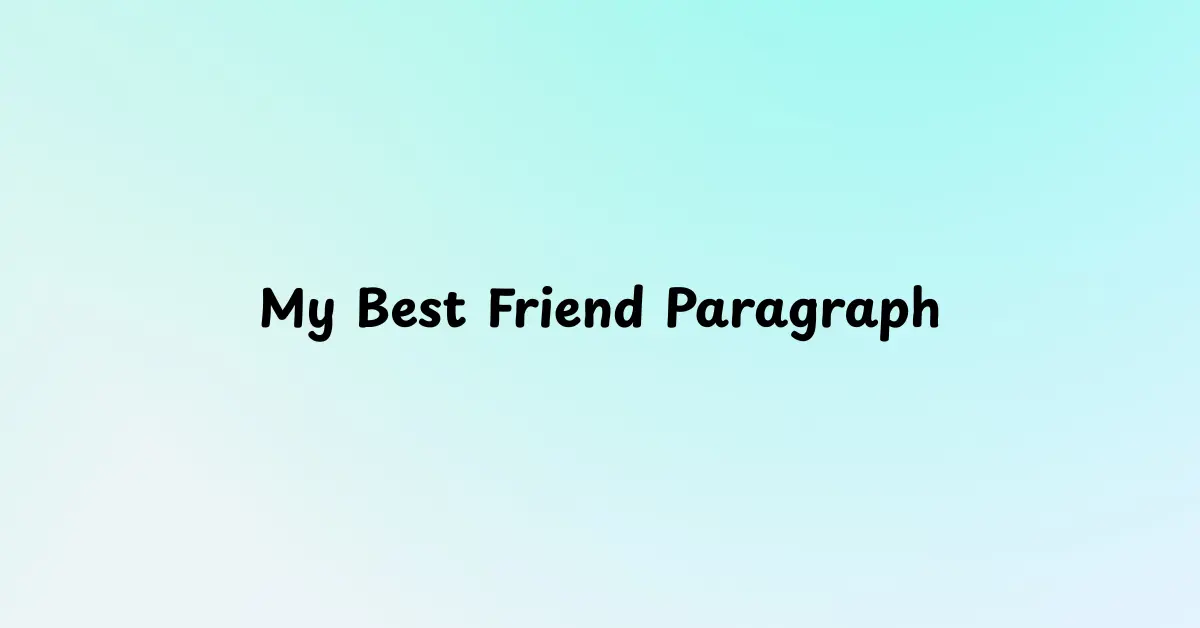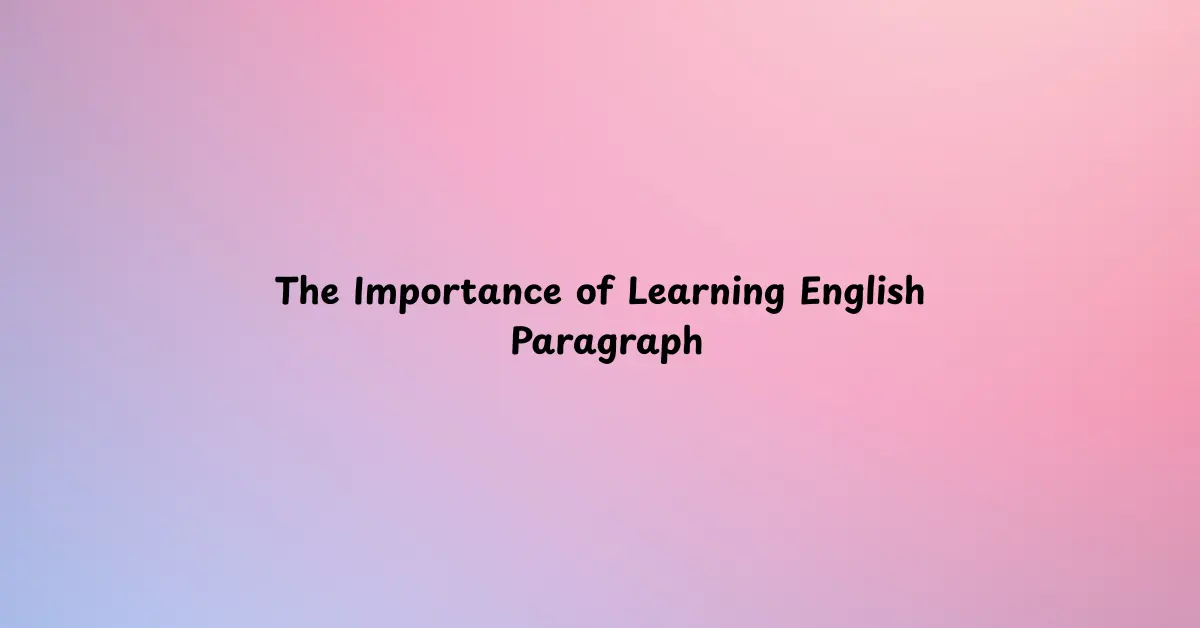This post shares a fun and helpful dialogue about proper use of time between two friends, Nurul and Samad. They talk about making to-do lists, avoiding distractions, and taking short breaks to use time wisely. You’ll also learn some handy tips on focusing and balancing tasks. Let’s start today’s lesson!
Dialogue About Proper Use Of Time For HSC
Nurul: Hi, how are you?
Samad: I’m fine, thanks. And you?
Nurul: I’m fine too. What are you up to?
Samad: I was just thinking about how I can use my time better.
Nurul: That’s a good thought. Time is valuable. Once it’s gone, it never comes back.
Samad: True, but I often waste it without realizing.
Nurul: Many people do. The first step is to focus on planning your time.
Samad: How can I plan better?
Nurul: Start small. Make a list of what you need to do in a day.
Samad: Should I write it down?
Nurul: Yes. Writing helps. Also, do important tasks first when you have more energy.
Samad: That makes sense. But I sometimes lose track of time.
Nurul: Set a timer for each task. It will help you stay on track.
Samad: I’ll try that. Anything else?
Nurul: Avoid distractions. For example, put your phone away while you work.
Samad: That’s a good idea. Thanks for the tips.
Nurul: You’re welcome! Goodbye, see you later.
Samad: Goodbye! Take care.
Dialogue About Proper Use Of Time For SSC
Nurul: Hi, how are you?
Samad: I’m fine, thanks. And you?
Nurul: I’m fine too. What are you up to?
Samad: I was just thinking about how I can use my time better.
Nurul: That’s a good thought. Time is valuable. Once it’s gone, it never comes back.
Samad: True, but I often waste it without realizing.
Nurul: Many people do. The first step is to focus on planning your time.
Samad: How can I plan better?
Nurul: Start small. Make a list of what you need to do in a day.
Samad: Should I write it down?
Nurul: Yes. Writing helps. Also, do important tasks first when you have more energy.
Samad: That makes sense. But I sometimes lose track of time.
Nurul: Set a timer for each task. It will help you stay on track.
Samad: I’ll try that. Anything else?
Nurul: Avoid distractions. For example, put your phone away while you work.
Samad: That’s a good idea. Thanks for the tips.
Nurul: You’re welcome! Goodbye, see you later.
Samad: Goodbye! Take care.
Dialogue About Proper Use Of Time For Class 6 7 8 9 10
Nurul: Hi, how are you?
Samad: I’m fine, thanks. And you?
Nurul: I’m fine too. What’s on your mind?
Samad: I’ve been thinking about how I waste a lot of time.
Nurul: That’s something many people feel. You can fix it with a bit of planning.
Samad: How do I start?
Nurul: Make a list of what you need to do each day.
Samad: A to-do list?
Nurul: Yes. And do the most important things first.
Samad: What about distractions?
Nurul: Try to avoid them. Keep your phone away when you need to focus.
Samad: That’s a good idea.
Nurul: Also, take short breaks to stay fresh.
Samad: I’ll try all this. Thanks for the advice.
Nurul: You’re welcome. Goodbye, see you later.
Samad: Goodbye! Take care.
Dialogue About Proper Use Of Time With Bangla Meaning
Nurul: Hi, how are you?
Samad: I’m fine, thanks. And you?
Nurul: I’m fine too. What’s new?
Samad: Nothing much, but I’ve been thinking about how I use my time.
Nurul: Really? That’s good. Time is precious. If we waste it, we can’t get it back.
Samad: I know. But sometimes, I feel like I don’t use it wisely.
Nurul: That happens to everyone. The key is to plan your day.
Samad: Plan my day? How do I do that?
Nurul: Start by writing down your tasks. Make a small list every morning.
Samad: Should I include everything, even small tasks?
Nurul: Yes, that helps. Then, decide which tasks are the most important. Finish those first.
Samad: That sounds simple. But I often get distracted.
Nurul: Distractions are normal. Try to avoid things that pull your attention. For example, keep your phone away.
Samad: I always check my phone. I should stop doing that.
Nurul: Exactly. Focus on one thing at a time.
Samad: What about working for long hours?
Nurul: Take short breaks. It refreshes your mind and keeps you motivated.
Samad: I see. This really helps.
Nurul: I’m glad. Just remember, it’s all about balance and planning.
Samad: Thanks for the advice. I’ll work on it.
Nurul: You’re welcome. Goodbye, see you later!
Samad: Goodbye! Take care.
অনুবাদ :
নুরুল: হাই, তুমি কেমন আছো?
সামাদ: আমি ভালো আছি, ধন্যবাদ। আর তুমি?
নুরুল: আমিও ভালো আছি। কি খবর?
সামাদ: কিছু না, তবে আমি ভাবছিলাম কিভাবে আমি আমার সময় ব্যবহার করি।
নুরুল: সত্যি? এটা ভালো চিন্তা। সময় খুব মূল্যবান। এটা একবার চলে গেলে আর ফিরে আসে না।
সামাদ: আমি জানি। কিন্তু মাঝে মাঝে মনে হয় আমি সময় ভালোভাবে ব্যবহার করি না।
নুরুল: এটা সবার ক্ষেত্রেই হয়। আসল ব্যাপার হলো দিনের পরিকল্পনা করা।
সামাদ: দিনের পরিকল্পনা? সেটা কিভাবে করবো?
নুরুল: প্রথমে তোমার কাজগুলো লিখে রাখো। প্রতিদিন সকালে একটা ছোট লিস্ট বানাও।
সামাদ: ছোট কাজগুলোও লিখতে হবে?
নুরুল: হ্যাঁ, এতে অনেক সাহায্য হয়। এরপর সবচেয়ে গুরুত্বপূর্ণ কাজগুলো ঠিক করো। প্রথমে সেগুলো শেষ করো।
সামাদ: এটা সহজ শোনাচ্ছে। কিন্তু আমি প্রায়ই বিভ্রান্ত হয়ে যাই।
নুরুল: বিভ্রান্তি স্বাভাবিক। এমন জিনিস এড়িয়ে চল, যেগুলো তোমার মনোযোগ নষ্ট করে। যেমন, ফোনটা দূরে রাখো।
সামাদ: আমি সারাক্ষণ ফোন চেক করি। এটা বন্ধ করা উচিত।
নুরুল: ঠিক তাই। একবারে একটাতে মনোযোগ দাও।
সামাদ: অনেকক্ষণ কাজ করা নিয়ে কী বলবে?
নুরুল: ছোট বিরতি নাও। এটা তোমার মনকে সতেজ রাখে এবং তোমাকে উদ্যমী রাখে।
সামাদ: বুঝলাম। এটা সত্যি কাজে আসবে।
নুরুল: খুব ভালো। মনে রেখো, এটা সবই ভারসাম্য আর পরিকল্পনার ব্যাপার।
সামাদ: পরামর্শের জন্য ধন্যবাদ। আমি এটা চেষ্টা করবো।
নুরুল: স্বাগত। ভালো থাকো, আবার দেখা হবে!
সামাদ: আবার দেখা হবে! ভালো থেকো।
Hard To Read Words used In This Post
- Valuable – মূল্যবান: যা অনেক গুরুত্বপূর্ণ বা দামী।
- Realizing – উপলব্ধি করা: কোনো কিছু বোঝা বা অনুভব করা।
- Distractions – বিভ্রান্তি: এমন কিছু যা মনোযোগ নষ্ট করে।
- Energy – শক্তি: কাজ করার ক্ষমতা বা উদ্যম।
- Track – পথ: কোনো কাজের অগ্রগতি বা দিক।
- Avoid – এড়ানো: কোনো কিছু থেকে দূরে থাকা।
- Focus – মনোযোগ: কোনো একটি বিষয়ে মনোযোগ কেন্দ্রীভূত করা।
- Precious – অমূল্য: যা খুবই দামী বা গুরুত্বপূর্ণ।
- Motivated – অনুপ্রাণিত: কাজ করার জন্য উৎসাহিত হওয়া।
- Balance – ভারসাম্য: সমানভাবে সবকিছু পরিচালনা করা।
Also Read : Dialogue Importance Of Learning English
FAQs on Proper Use of Time
Q1. Why is it important to plan your day?
Planning your day helps you manage your time better. You know what to do and when to do it. It keeps you focused and makes sure you don’t forget anything important.
Q2. What is a to-do list, and how can it help?
A to-do list is a small list of tasks you need to do. It helps you stay organized. When you finish each task and cross it off, you feel more motivated to do the rest.
Q3. How can I avoid distractions while working on something?
Distractions like your phone or video games can waste your time. To avoid them, keep your phone away or turn off notifications when you need to focus.
Q4. Can I work for long hours without breaks?
No, it’s not a good idea to work for hours without stopping. Taking short breaks helps keep your mind fresh and gives you energy to continue.
Q5. How can I know which tasks to do first?
Decide which tasks are the most important. Start with those. These might be schoolwork or chores that must be done first. This way, you’ll use your time wisely.
Thank you for reading our post. If you have any questions or thoughts, feel free to leave a comment below or email us. We are always happy to hear from you and ready to help.








